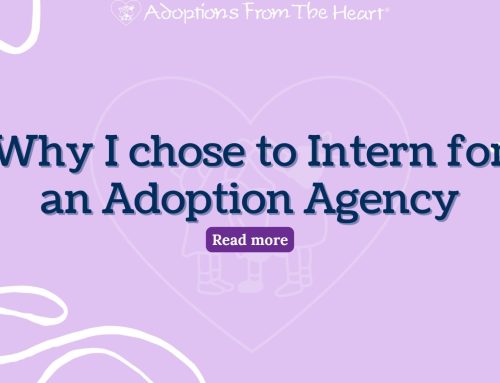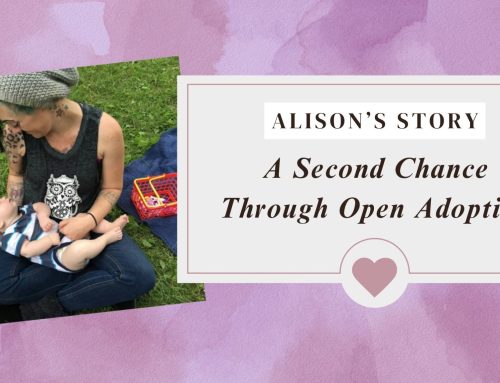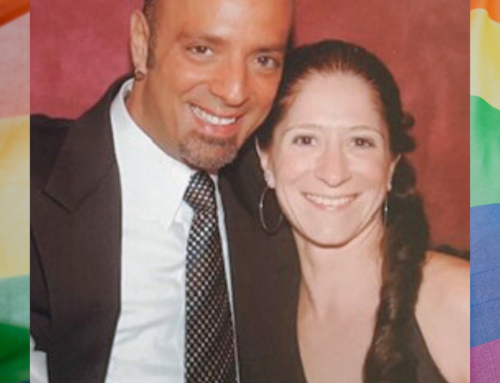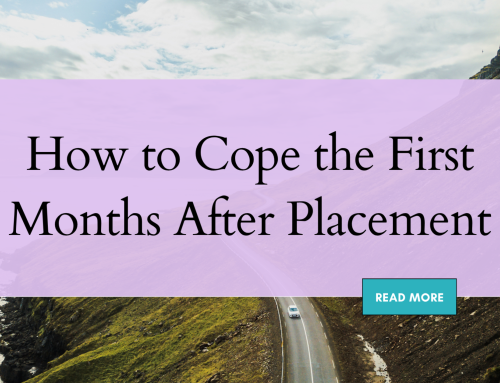In recognition of National Infertility Week, this month’s Heart-to-Heart podcast focuses on navigating infertility. As usual, Jenna Smith, AFTH’s Domestic Program Coordinator, hosted the podcast. There were two guest speakers this week, Tracy and Michelina. Tracy is a Content Manager at Creating a Family, the national non-profit whose mission is to strengthen and inspire adoptive, foster & kinship parents and the professionals who support them. Michaelina Bendig is a social worker at Adoptions From The Heart for the past 21 years. Both have experience with infertility and adoption in their professional and personal lives.
When to Seek Professional Help
When dealing with infertility, certain groups of people have specific times to turn to professional help. For those 35 years and younger, seek help after a year of trying, unsuccessfully, to conceive a child. For those over 35 years, seek help after six months of trying. Those who have preexisting health conditions or have a family history of such conditions should seek help even earlier than six months.
The Emotional Impact of Seeking Professional Help
Tracy talks about the importance of recognizing the impact of infertility. It touches many aspects of a person’s life and the people in their life. The testing can be overwhelming and being open with one’s partner becomes imperative. Both parties need to set limits to what kind of testing is comfortable and how far they want to go in terms of invasiveness. Couples with mismatched expectations struggle as it is hard enough to go through the process with the support and understanding of a partner. Trying to move forward separately or move forward before one is ready may negatively affect the relationship.
It is important to remember that seeking out professional help is done to alleviate doubts and to receive answers. Never be afraid to ask questions or ask for more resources. The diagnosis can be a difficult weight to carry alone. Seeking counsel is recommended. Counsel can be with a therapist, a trusted peer, or a religious authority. When attending therapy, bring in a partner or friend who is going through the process as well. That way the person has a more informed support group.
Michelina agreed with the importance of seeking professional help as she didn’t feel she had that option after her newborn son passed away. At that time, around 30 years ago, therapy wasn’t openly talked about and wasn’t a resource she was given. Michelina relied on her mother as her support, which she greatly appreciated. At the same time, she felt her mother couldn’t completely understand what she experienced, as she never had any fertility complications. Looking back on her personal experiences, Michelina stresses the importance of finding support from those who can truly relate.
Creating a Family’s Resources
Tracy talks about her organization’s resources, one of the most popular being their Facebook support group. It has about 9,000 members. The support group houses all members of the triad and is available 24/7 as it is online. They cover the cultural impacts of loss and grief, and hot to talk with those who might not completely understand because they have not gone through that kind of grief and loss themselves.
The website provides resources, like blogs, for coping with infertility and all the emotions that go with it. The website also supplies contact information for therapists and other support groups, like Resolve.org.
Grief and Loss from Infertility
Tracy and Michelina found from their professional and personal lives that men and women tend to grieve differently. This means one partner typically moves on quicker than the other. In their personal lives, their husbands recovered from the loss of a child quicker. For Michelina, the physical pain of her miscarriage prevented her from moving on as it was a daily reminder of what she lost.
Every person grieves differently and at a different pace. Being patient when a partner is at a different stage is important. Moving forward together to a new phase in life is better than mismatched expectations. No one should feel pressured into moving on before their grief has run its course. Give space or support when it is needed.
Adoption’s From The Heart asks its applicants questions about the grief process before moving forward in the adoption journey. This allows families to be paired with a child when they are ready and not when they’re still deeply grieving.
How Do You Know You’re Ready to Expand Your Family After a Loss?
Michelina considered adoption during her challenging pregnancy, which kept her in the hospital for three months. She mentally prepared herself for the chance that her pregnancy would not result in a positive outcome. When she did lose her child, she paused the adoption plans to mourn her loss, but afterward, she went back to adoption. By already having adoption as an alternate route to expanding her family, she felt a sense of hope and control. This felt important after coming from a time filled with a lack of hope and control in terms of her pregnancy and health.
Tracy brings up that people usually consider surrogacy and donors while they consider adoption. On top of the emotional and physical implications, people need to consider the financial factors in expanding through any of these methods. Making sure a couple feels confident with their path is imperative. Tracy recommends finding people who have adopted or done donor embryos and speaking to them about their experiences. Making an informed decision when choosing a path is crucial.
Emotionally Committing to Adoption
Most adoption agencies prohibit people from undergoing fertility treatments while in the adoption process. A transition needs to happen. Both paths require intense commitment, and it takes time to grieve the loss of a child and the idea of the family that might have been. Either doing fertility treatments or starting the adoption process means committing a lot of time and energy and emotion. It’s not sustainable to give that kind of presence to both simultaneously.
Tracy suggests writing a letter to the child that was dreamt of. This is a tool to help come to terms with the loss of what might have been and being able to move on. Coping is the goal rather than closure. Closure is something that might never be achieved but coping with those emotions is much more realistic and manageable. Michelina agrees with this sentiment. For her, she has managed to be inspired and motivated by her infertility journey. It propelled her towards adoption and a career change. Her infertility shaped her identity. Michelina found using the feelings of grief and loss allowed her to be a more empathetic and compassionate mother after adopting.
To listen to the podcast, click here.




